You are here
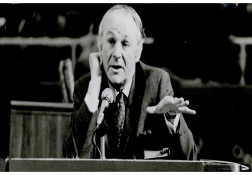 August 10 2021
John Stott (1921-2011) and his contribution to an evangelical analysis of Roman Catholicism
August 10 2021
John Stott (1921-2011) and his contribution to an evangelical analysis of Roman Catholicism
By helping post-World War II evangelicals to regroup around the biblical gospel and for the Christian mission, Stott also had a role (albeit not a primary one) in influencing the evangelical reading of Roman Catholicism that emerged from the Second Vatican Council (1962-1965).
Read more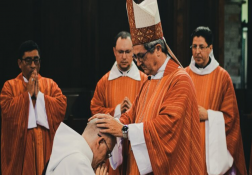 August 02 2021
Apostolic Succession Reinvented
August 02 2021
Apostolic Succession Reinvented
Anglicans and most Protestants hold to an understanding of "Apostolic Succession" as the succession of apostolic teaching as St. Paul directed to Timothy (2 Tim 2:2). This important "passing-on" is symbolized by the laying on of hands at ordinations. The church always veers into trouble when the symbol is given priority over the thing symbolized.
Read more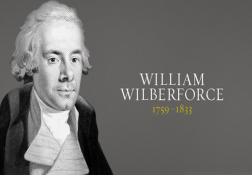 July 26 2021
Wilberforce and the New Heaven
July 26 2021
Wilberforce and the New Heaven
What motivates Christians like Wilberforce to act for justice, beauty and evangelism? Not some artificial mandate to construct the Kingdom of God on the earth. Rotary Club religion, the so-called "social gospel" or "liberation theology," makes Christianity into some social reform movement and uses Christ as a motivational tool.
Read more July 12 2021
Contending for the faith -- Reflections on Retirement
July 12 2021
Contending for the faith -- Reflections on Retirement
At the time Reform rattled the bars of the powers-that-be. In all honesty it unsettled a good number of fellow evangelicals, perhaps especially those who had heeded the call of the first National Evangelical Anglican Congress at Keele in 1967 to join in more positively with the institutions of the CofE to make their evangelical influence felt from within.
Read more July 03 2021
LUTHER'S RIGHTEOUSNESS
July 03 2021
LUTHER'S RIGHTEOUSNESS
"Luther believed that the inevasible human tendency toward self-centeredness rendered it impossible for anyone to be truly righteous this life. Therefore, humanity was constrained to seek another righteousness as the objective basis for justification, not relying on something within them, but looking beyond themselves to the perfect human righteousness which belonged to Christ alone.
Read more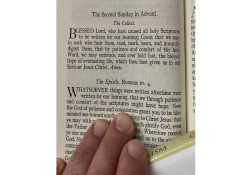 June 24 2021
Give me More Than Evangelical
June 24 2021
Give me More Than Evangelical
Being evangelical used to mean viewing the Bible as God's unique, inspired revelation (sola Scriptura), but in some evangelical churches today the Bible is one part, a subordinate part, next to the authorities of tradition and cultural relevance. Being evangelical originally meant a commitment to the central teaching of Scripture: justification by grace through faith alone.
Read more June 16 2021
THE ACNA: A VIEW FROM THE NALC
June 16 2021
THE ACNA: A VIEW FROM THE NALC
Likewise, homosexuality was only the surface-level reason for the NALC's formation. Factions of the Evangelical Lutheran Church in America (ELCA), founded in 1988, had long lamented the loss of confessional commitment amidst the raft of ill-conceived ecumenical agreements the ELCA promptly established with other mainline Protestants in the 1990s. Some didn't like that the ELCA had downgraded its Lutheranism. Others felt the ecumenical direction wasn't serious enough about reunion with Rome.
Read more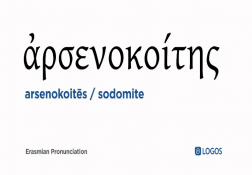 June 09 2021
Don't Be Silly: The Term Arsenokoitai ("men lying with a male") in 1 Cor 6:9 Is Not Limited to Pederasts
June 09 2021
Don't Be Silly: The Term Arsenokoitai ("men lying with a male") in 1 Cor 6:9 Is Not Limited to Pederasts
That is not the way a biblical scholar thinks. Translations given at much later dates don't determine the meaning of terms at much earlier dates. The author is right that the word does not mean "homosexuals" (RSV, 1st ed.; or, for that matter, "sodomites"; "Sodom" is not part of the stem of this noun).
Read more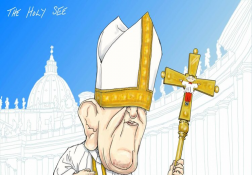 June 07 2021
CHOOSE A POPE
June 07 2021
CHOOSE A POPE
Protestants do not find the primacy-of-Peter in the Bible, neither do we recognize a centralized authority with permission to mix biblical and unbiblical teachings (magisterium) to instruct Christians about what to believe.
Read more May 29 2021
Infant Baptism and Regeneration
May 29 2021
Infant Baptism and Regeneration
Roman Catholics believe that the sacraments (ex opere operato) automatically and always effect what they signify - that the bread and wine of Communion is the actual, corporeal body and blood of Christ whether it is received by a faithful penitent or accidentally by a mouse under the communion table nibbling the crumbs. And everyone who is baptized, newborn or adult, is automatically born again.
Read more


